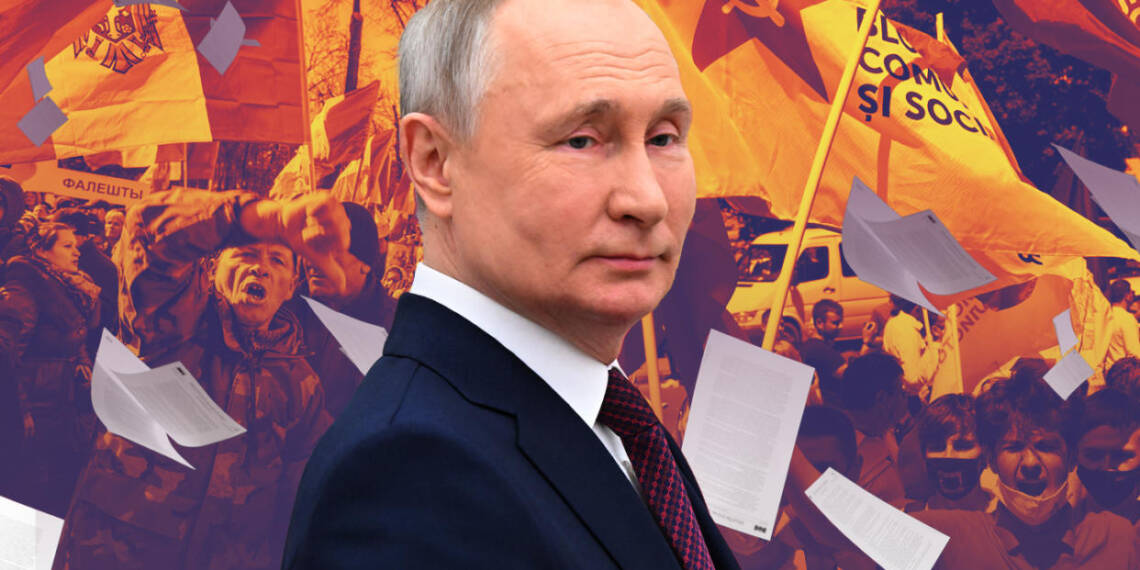In a decisive move, the Russian President Vladimir Putin has managed to push Europe towards another energy crisis. The Russian state-owned multinational energy corporation, Gazprom has announced that it will suspend gas exports to Moldova from January 1, 2025 due to unpaid debt. Moldova was a part of the erstwhile Soviet Union but is currently governed by a pro west President. Russia has on many occasions warned the nation to not align itself with Ukraine, the Kremlin had also accused Moldova of plotting a military operation in Transnistria, a Russian-backed secessionist region bordering Ukraine. It now seems the Moscow is using other methods to manage its threat perceptions.
Russia had already cut off most natural gas supplies to Europe in 2022, citing disputes over payment in rubles, a move European leaders described as energy blackmail over their support for Ukraine against Russia’s invasion. European governments had to scramble to line up alternative supplies at steep prices, much of it liquefied natural gas brought by ship from the U.S. and Qatar.
Gazprom’s recent decision comes days before the complete suspension of Russian gas exports through Ukraine to Europe, where it flows to Slovakia, Austria, Hungary and Italy, after the existing transit agreement with Ukraine expires on December 31. This means that the new year might bring with it huge power woes for the European continent.
Gazprom said in an online statement that it reserved the right to take further action, including terminating its contract with Moldovagaz, Moldova’s main gas operator, in which the Russian company owns a majority stake. The cessation of gas will stop supplies to the Kuciurgan power plant, the country’s largest, which is situated in the contested pro-Russian Transnistria region.
Russia-Moldova Relationship
Russia has had a fractured relationship with Moldova for some time. Though it was once part of the Soviet Republic, the country has been leaning drastically towards the west in recent times. In October, Moldova’s pro-Western President Maia Sandu won a second term in office, and a referendum voted in favor of securing the country’s path toward the EU, in two votes with overt claims of Russian interference to derail the country’s westward shift in recent years. The west leaning Maia Sandu was elected for her second term only a few days back.
The Russian Ministry of Foreign Affairs has recently claimed that NATO was turning Moldova into a weapons hub for Ukraine. Russia’s Foreign Intelligence Service has also claimed that Moldova’s Sandu was planning a military operation in Transnistria. Russian intelligence speculated that the military operation could escalate into war. Though Moldova deny any such plans it is to be noted that Moldova claims the Transnistria territory as their own.
Then, on Wednesday, Russia added a new allegation — that the US-led NATO had transferred a large number of weapons to Moldova in recent months. Maria Zakharova, the Russian foreign ministry spokesperson, said that Moscow believed these weapons were ultimately intended for Ukraine. She cited Sandu’s pro-Western leanings to bolster her claims.
In recent months, Russian President Vladimir Putin has increasingly suggested that not just Ukraine, but other countries that help it in its war against Moscow could potentially be treated by the Kremlin as enemies that it might attack.
When Sandu was sworn in for her second term, she outrightly claimed her leaning towards the EU, “We managed to open the door wide to the European Union.” she said. Moldova has been a candidate country for the EU since June 2022, waiting for Brussels to formally accept its request to join the group. The statements have led to alarm bells ringing in Moscow, with Russia accusing the West of once again meddling in its neighborhood and bringing NATO and its allies at its doorstep, generating a huge security threat for the region.
Effects of the impeding Power cut
Meanwhile Moldovan Prime Minister Dorin Recean has condemned Russia’s decision of cutting the gas supply, saying residents would be left without electricity and heating. He accused Russia of using energy as a weapon and announced that Moldova would consider legal remedies, including international arbitration.
Russia, which supplies Moldova with about two billion cubic meters of gas a year via Ukraine, is demanding $709 million in debt, but official Chisinau says it owes only $8.6 million. 2.5 million Moldovans are bracing for long power outages since Ukraine announced the termination of its gas transit contract with Gazprom.
On Dec. 13, Moldova’s parliament voted in favor of imposing a state of emergency in the energy sector, as the looming crisis threatened to leave the former Soviet republic without sufficient energy this winter, sparking fears it could trigger a humanitarian crisis in Transnistria, where the impact of the gas cutoff could be immediately felt.
Many observers have predicted that the looming energy shortage could force residents in Transnistria to travel to Moldova to seek basic amenities to get through winter, a season in which temperatures throughout the country regularly drop below subzero degrees Celsius.
Moldova’s government on Friday announced it would implement a series of measures starting Jan. 1 to reduce energy consumption. These include limiting lighting in public and commercial buildings by at least 30%, and energy-intensive businesses operating during off-peak hours.
In late 2022, a few months after the Russia-Ukraine war began, Moldova suffered major power outages following Russian strikes on Ukraine, which is interconnected to the power plants. When the war next door started, Moldova was entirely dependent on Moscow for natural gas but has since attempted to diversify and expand its energy sources by obtaining gas from other European markets. However it is still not considered enough as the region is expected to undergo a huge crisis due to this move from the Kremlin. So far Putin has successfully managed to thwart the efforts of the West to hamper the Russian economy, while also giving the European economies heavy blows by cutting their energy supplies. 2025 looks to be bringing with it a dark new year for Europe.








